|
“At the school of Mary, we learn that her life is marked not by protagonism but by the capacity to enable others to be protagonists. She offers courage, teaches people to speak, and above all encourages people to live the boldness of faith and hope. In this way she becomes the transparency of the Lord’s face who shows his power by inviting and calling people to participate in building up his living temple.” – Pope Francis, Homily on the Feast of Our Lady of Guadalupe, 2018
Such a strange thing Christ has done! He has left his mission to the baptized until he comes again in glory at the end of time. This is the part of Advent waiting that we often do not dwell on. The first half of Advent is very much focused, though, on this reality. Our waiting is not passive, but very active. We are protagonists who are called to boldly witness Christ in our lives. Bold witness in the way of Our Lady of Guadalupe, who encouraged St. Juan Diego to go forth to build not simply a physical temple in the Lord, but one that is living. In a time of needed renewal within the Church, we turn to the Blessed Virgin Mary to be with us, but also to give us example. She did not focus on the reality of the change in her life when she heard the message of the Angel Gabriel. Instead, she rose and went “in haste” to her cousin Elizabeth to rejoice and be in solidarity with her. Elizabeth’s son, St. John the Baptist, later went forth to prepare others for the coming of the Messiah through conversion of hearts and minds to the Lord. We, too, are meant to do the same. We cannot sit back and wait for others, but need to go forth with urgency, in haste, “inviting and calling people to participate in building up his living temple.” This inviting and calling that enables “others to be protagonists” has a name – co-responsibility. It is co-responsibility for the mission of Christ and his Church. Pope Francis invites us to “move towards a participatory and co-responsible Church, one capable of appreciating its own rich variety, gratefully accepting the contributions of the lay faithful, including young people and women, consecrated persons, as well as groups, associations and movements. No one should be excluded or exclude themselves” (Christus Vivit, 206). Therefore, may our Advent waiting not be passive, but very active in our bold witness of Emmanuel, King of the Nations and Prince of Peace! Our Lady of Guadalupe, pray for us. May the Charity of Christ urge us on!
0 Comments
On May 31st, our Church celebrated the Feast of the Visitation—that hallowed moment when Elizabeth was greeted by her cousin Mary and when Scripture tells us that the infant leaped in her womb. We hear that the very first thing that Mary did after she was visited by the angel Gabriel was go and visit her cousin Elizabeth. The line that always sticks out to me from this Gospel account of the Visitation is: “During those days Mary set out and traveled to the hill country in haste.” Mary did not just travel to visit her cousin - to celebrate the faithfulness of God and what He had done for her – but she traveled immediately, quickly, and with haste. Not only did Mary know that the good news of the Incarnation - of God dwelling in her very womb - was too good to keep to herself, but she also knew of the importance of showing up for those whom she loved most. One of the things I believe most firmly about our lives as Christian disciples is that when we encounter the faithfulness of God (either in our lives or in the lives of those around us) we are called to share it with others. It can be all too easy to think that the stories of Mary and Elizabeth - one conceiving by the power of the Holy Spirit and the other receiving the gift of a child after being called barren - is some far off story that happened 2,000 years ago and not something applicable to us. We must ask ourselves: Where have I experienced the faithfulness of God in my life? Where have I seen it around me? Where am I being called to share it? Am I making haste to get there? I was lucky enough to attend a school called Visitation High School; as you drove up the main drive to our school building, there was a beautiful statue of Mary and Elizabeth embracing. Every day I was reminded of the great joy that they shared with each other and ultimately the peace that came by believing that what was promised to them would be fulfilled. (Luke 1:45). In our hurting, broken, and messy world, we could use more moments of making haste. Making haste to show up for a friend that we know is suffering. Making haste to share the good news of Jesus with a family member or friend. Making haste to celebrate our loved ones even while we experience sorrow or hardship. It is the great privilege of the Christian to make haste like Our Lady, to show up and to share the good news that,“The Mighty One has done great things for me, and holy is His name.” (Luke 1:49). Angels are mysterious beings. Our culture has a lot of misconceptions about angels--what they are, who they are, and what they do. According to the Catechism of the Catholic Church (CCC), an angel is a being of pure spirit; that is “what” they are. St. Augustine tells us that the word “angel” is actually what they do: they are messengers and servants of the Most-High God. There are three archangels named in the Bible: Michael, Raphael, and Gabriel. These messengers served God’s people at different times and had different purposes. They had vastly diverse missions, each corresponding to their very identity and being. Let’s take a look at them now. St. Michael is known as the Prince of the Heavenly Hosts and the defender of God’s people. According to the Catholic Bible Dictionary, Michael means “Who is like God?”. In the Book of Revelation, “Michael and his angels” battle the dragon, an ancient symbol of the devil, and throw him and his followers out of heaven. Christianity honors him as a patron of the nation of Israel, God’s chosen people of the Old Testament. Today, Michael is still thought of as a guardian of the Church, God’s people of the New Testament. St. Raphael is mentioned in one book of the Bible—the Book of Tobit. His name can be translated as “God will Heal.” In the Book of Tobit, God sends Raphael to answer the prayers of two people: Tobit, who was blinded by bird droppings, and Sarah, who was harassed by a demon who killed any man she married. These two, on the same day, prayed to God for death. God answered their prayers by sending Raphael, who brought together Tobias, Tobit’s son, and Sarah. He also banished the demon that stalked Sarah and healed Tobit’s blindness in the same journey. St. Gabriel appears once in the Old Testament and twice in the New Testament. His name means “God is my warrior” or “God is strong.” First, he is sent to the prophet Daniel in the time of the great exile to interpret visions concerning the coming of the Messiah. Second, he appears to Zechariah to foretell the birth of John the Baptist. St. Gabriel is best known, however, for appearing to Mary and announcing the birth of the Messiah, Jesus. The names of these angels tell us their missions. Michael (Who is like God) reminds us that there is no one like our God who deserves and desires our love. Raphael (God Heals) reminds us that it is only through the power of the Divine Physician that our wounds can be healed. Gabriel (God is Strong) reminds us that it is in God and the proclamation of his Word that we find our true strength. What can these three messengers tell us about our missions? Our own name gives us our mission. I’m not necessarily thinking about our personal names, as those meanings don’t always correspond to a call from God. Through our baptism, we have been named Christians. In the early Church, the term was used in reference to those who followed Christ and were persecuted for the faith. This name gives us our truest identity as those who belong to and follow Christ. It also gives us a mission: to continue his work in our world today. We are called to be the face, hands, feet, and heart of Jesus to all we encounter. Let us live out of this identity as authentically as we can so that others may come to know Jesus through us. As St. Ignatius of Antioch, who lived in the generation after the apostles, said, “Let me not merely be called ‘Christian’; let me be one.” May the angels and archangels help us to live up to our identity and mission as followers of Christ on our journey towards heaven. NOTE: Definitions of angels’ names found in the Catholic Bible Dictionary edited by Scott Hahn. Editor's note: This blog was originally published in 2013. We are re-posting it in honor of the two upcoming Marian feast days on September 8 (the Nativity of Mary) and September 12 (the Most Holy Name of Mary). Blessed Mother, pray for us!
Both of my grandmothers had great devotion to the Blessed Mother. I remember going to their homes and seeing statues of Mary and other saints, prayer cards, and crystal and silver rosaries. I learned much from them and my mother about devotion to the Blessed Virgin Mary. Back in 1901, on this day, the feast of the Most Holy Name of Mary, my grandmother, Millie Donio, was born. During my childhood, though, I did not know that it was a feast day, because with the reform of the liturgical calendar in 1969, the feast was removed. Restored by Blessed John Paul II in 2002 in the revised Roman Missal, it is now an optional memorial. Interestingly, there is only one other feast related to the name of a person, the Most Holy Name of Jesus, celebrated on January 3rd. This feast day was restored in 1996. The name, Mary, could mean “sea of bitterness” or, possibly, “beloved”. Consider for a moment how many situations Mary found herself in that could have resulted in bitterness. When the unwed young Mary was told by the angel Gabriel that she was pregnant by the “power of holy Spirit,” she did not focus on her own situation, but made herself available to her cousin Elizabeth (Lk 1:39-40). When her son, Jesus, went off preaching suddenly at age 30, the scriptures show no evidence of her complaining about it. Instead, she says, “Do whatever he tells you” (John 2:5). No bitterness there. When she is at the foot of the cross watching her son die before her eyes, powerless to do anything about it, she accepts being given over the care of the Beloved Disciple, he as her son, she as his mother (John 19:26-27). Sorrow, yes. Bitterness, no. A “sea of bitterness” around her, but she, being the perfect disciple, shows us the way to be. She shows us how to live as beloved by God. My grandmothers showed me how to live as one beloved by God. They each had their various hardships in life – physical sufferings, emotional difficulties, financial challenges – but each held firm to her faith and it was faith in God that sustained them. They each moved outside of themselves and cared for others, even in the midst of their own struggles. I will never forget going with Grandmom Donio to quietly drop off bags of fruits and vegetables at the back doors of the homes of people she knew were in need of them, but were not able to ask others for help. No words exchanged, we were not even seen, just an action done for good because the other is beloved by God. Being beloved by God does not mean there will be no suffering or challenge in life. Being beloved by God, called by our name in Baptism, which claimed us for Jesus Christ, we are not left alone to simply move through life. We have the ones we call by name, Mary who intercedes for us with the other person we call by name, Jesus, who is also the Son of God. We call also on the names of the other baptized in the community of faith, the Church. We call out with all of our needs as we live in what can seem at times like a “sea of bitterness.” But, we are not meant to be bitter in life, no matter what we experience. Pope Francis offers us encouragement to move out of ourselves toward others: “Let us never yield to pessimism, to that bitterness that the devil offers us every day; let us not yield to pessimism or discouragement: let us be quite certain that the Holy Spirit bestows upon the Church, with his powerful breath, the courage to persevere and also to seek new methods of evangelization, so as to bring the Gospel to the uttermost ends of the earth (cf. Acts 1:8)” (Audience with the College of Cardinals, March 15, 2013). What are we to do then? Not live in bitterness, but witness as ones beloved. We are to call others by name and assist them in being good disciples of Jesus Christ, following the pattern of life and asking the intercession of the one called Mary. “See, I am sending an angel before you, to guard you on the way and bring you to the place I have prepared. Be attentive to him and obey him.” -Exodus 23:20-21 I grew up having a devotion to angels, especially the archangels Gabriel, Raphael, and Michael, whose feast we celebrate tomorrow. Because my sister was born on this feast, my parents gave her the middle name Gabriela in honor of my mother and of the Archangel Gabriel – messenger of Good News. When I was a child, my mom often mentioned Raphael the Archangel as one of her favorite saints. She had prayed to him as a single woman because of his role in the Book of Tobit in bringing together Tobias and Sarah. Because of his intercession, she said, she met and married my father. Throughout their marriage, a photo of St. Raphael has always hung in their bedroom. Our devotion to St. Michael was uttered each day as we asked for his protection and intercession in the St. Michael prayer. Because of my upbringing, I have come to know and love the angels as allies and friends. But what exactly is an angel? Are they ghosts, human beings with wings, or simply fairytales? In a morning meditation in 2014, Pope Francis urged us not to consider the Church doctrine on the existence of angels to be “a little imaginative.” Angels are real and active in the life of the Church and world today. “As purely spiritual creatures,” the Catechism writes, “angels have intelligence and will: they are personal and immortal creatures.” (CCC330). The Church’s teaching on the existence of angels comes from Scripture and Tradition. Angels are the result of God’s creative work. When we say in the Nicene Creed that we believe in things both “visible and invisible,” we testify to the existence not only of physical creation, but also of spiritual creation. As servants of God, angels appear numerous times throughout Scripture in various roles and capacities. Angels guarded the Garden of Eden after the Fall of Adam and Eve, led the Israelites out of Egypt to the Promised Land, announced the birth of John the Baptist, appeared to St. Joseph in several dreams, and perhaps most notably, announced the birth of Christ to the Blessed Virgin Mary. Scripture also notes that the angels ministered to Jesus after his forty days of prayer and temptation in the desert at the beginning of his ministry, and that Christ was strengthened by an angel during the agony in the garden of Gethsemane. Not only did angels exist in Biblical times, but they are also present to each one of us every day. St. Basil the Great taught that "each and every member of the faithful has a Guardian Angel to protect, guard and guide them through life.” The Catechism reiterates this belief, stating, “From its beginning until death, human life is surrounded by their watchful care and intercession. Beside each believer stands an angel as protector and shepherd leading him to life." Angels, therefore, were created by God to praise and glorify him, as well as to serve as his messengers and our protectors, instructors, and allies. Our guardian angels are a gift from God to help each one of us achieve eternal life. As we read in Hebrews, "Are they not all ministering spirits sent forth to serve, for the sake of those who are to obtain salvation?” The beauty of their existence means that, as human beings, we are never alone. We journey through this life with a celestial companion who wills our good and helps us achieve sanctity. Pope John Paul II wrote that devotion to our guardian angels and the angels overall leads to two outcomes: gratitude to God and peace and confidence. As we know, growth in the spiritual life can be difficult on our own. Each day we are called to overcome many temptations and weaknesses, to be healed, to grow in virtue. In God’s generosity, he not only gave us the gift of the Church and sacraments to receive grace and strengthen us on our journey; he also gives us celestial help through the existence of angels. As we prepare to celebrate the Feast of the Archangels tomorrow, Pope Francis leaves us with pertinent and thought-provoking questions: “How is my relationship with my guardian angel? Do I listen to him? Do I say good morning to him in the morning? Do I ask him: ‘Watch over me when I sleep?’ Do I speak with him? Do I ask his advice? … We can answer this question today, each of us: how is our relationship with this angel that the Lord has sent to watch over me and accompany me on my journey, and who always sees the face of the Father who is in heaven?” — Pope Francis, Homily, October 2, 2015 I am often struck by the Gospel call and invitation to have no fear. It seems liberating and intriguing, but often unrealistic as I look around at the situation of the world or confront my own littleness. As a wife and mother, the quietness or anonymity of my days can sometimes seem mundane or insignificant in a world marked with suffering. Then Christ’s words echo in my heart, “Be not afraid!” Be not afraid. So powerful is this message that it permeates Sacred Scripture. Pope St. John Paul II even began his pontificate with it. “Do not be afraid. Open wide the doors for Christ,” he said. “Do not be afraid to welcome Christ and accept his power.” A large portion of my adolescence was dominated by fear: the fear of rejection, of not fitting in, of failure. I had not opened the door to Christ and instead relied on my own devices rather than accepting his power, as the pope suggested. I found that fear is enslaving. This changed with various experiences throughout my college years. I remember being on a retreat, as a senior, where we were asked to meditate on the Annunciation and the Visitation. I walked to a hill overlooking the mountains of Northern California and began to re-read and reflect upon a passage I had heard countless times. As a spunky middle child, I had never much affiliated with the Blessed Virgin Mary. She seemed too pristine for my rambunctious, sporty, and mischievous personality. I couldn't relate. This particular reading of Mary’s assent to God’s plan, however, was different. No longer did I see a dainty girl who only radiated perfection, but a strong and bold woman who accepted God’s will without fear. I read her response of surrender, “Let it be done to me according to your word,” not as a feeble “OK, sure, whatever you say, Lord” but as a “Yes, Lord! Together, let’s do this!” Mary had opened wide the door for Christ. Her response was whole-hearted, even joyful. She was not afraid to welcome Christ and accept his power. “What a bold answer,” I remember thinking. What freedom! Up to that point in my life, I couldn’t recall ever responding to God in that way. I wanted what Mary had, a life without fear. Moments later, I repeated those immortal words, having finally embraced them as my own, “May it be done to me according to your word.” My life has never been the same since. Mary’s experience of trust in the Lord is what we are all invited to. Her lack of fear is completely possible for Christ’s followers. This does not mean lack of uncertainty, lack of stress, lack of hard choices or suffering. It means overarching faith and trust in God’s plan of goodness over our own. Mary did not have all the answers. In fact, she asked the angel Gabriel, “How can this be?” as he shared God’s plan of salvation. I can imagine Mary repeating this question years later in the silent recesses of her heart throughout Christ’s torture and crucifixion, “Lord, how can this be?” This is a question I often find myself asking throughout my day. How can this war be going on? How can this life be ending? How can this poverty be? God typically answers our questions not with a detailed explanation of his plan, but with himself. “Take courage, it is I; do not be afraid,” he tells his shaken disciples as he walks on water during the storm. In doing so, he does not belittle or ignore our questions, but redirects them. God alone suffices. It is for this reason that Pope John Paul II began his papacy by inviting us to “welcome Christ and accept his power” over our own. It is when we turn inward, relying on our own strength or power, that we become paralyzed by fear and uncertainty. It is when we turn inward that we forget who we are. Pope John Paul II poignantly stated, “So often today man does not know what is within him, in the depths of his mind and heart. So often he is uncertain about the meaning of his life on this earth. He is assailed by doubt, a doubt which turns into despair.” How many people do you know for whom these words are true? Pope John Paul II’s prophetic words strike at the heart of many of the issues of our society, issues that we ourselves face daily. Mary did not know this fear, this uncertainty, this despair. She never forgot who she was in God’s eyes, for she never knew herself apart from him. As we continue to live each day in our various jobs, ministries, and vocations, let us look to Mary as our model of liberation—a model of a life of freedom rooted in God, a life without paralyzing fear. May we repeat, until it becomes the prayer of our heart, “let it be done unto me according to your word.” May we open wide the doors for Christ in order to go out, as Mary modeled for us in the Visitation, to our fearful and suffering world, bringing the light and love of Christ to all we encounter. Be not afraid! Question for Reflection: What fears keep you from placing your trust fully in God? This week, ask Mary to help you say “let it be done to me according to your word.” In Pope Francis’ recent exhortation, Amoris Laetitia, he concludes with a prayer to the Holy Family. The first part of the prayer reads, “Jesus, Mary and Joseph, in you we contemplate the splendor of true love; to you we turn with trust.” In just those few words, we are reminded of the importance of the Holy Family; they are the perfect reflection of true love. They exemplify to us what it means to love God and one another.
Of course, it might be wise to first ask ourselves, “What is true love?” The dictionary defines it as a “strong affection for another” (Merriam-Webster). The author Victor Hugo once equated love to joy when he said, “The greatest happiness of life is the conviction that we are loved” (Les Miserables). For our purposes, let us take the definition straight out of the Gospels, that “no one has greater love than this, to lay down one’s life for one’s friends” (John 15:18). True love, then, is self-sacrificial. Having true love does not mean that we live to seek the best for ourselves. Rather, it means that we actively seek the best for others. Using this understanding of true love, it becomes clearer how each member of the Holy Family exemplifies those qualities. St. Joseph is commonly known as the silent man of the Gospels in that he is never quoted. Yet, we see episodes that testify to his goodness. Matthew’s Gospel tells us that when Mary became pregnant, Joseph wanted to divorce her quietly to spare her from any shame. Nevertheless, he ended up taking Mary into his home at the urging of the angel (Matthew 1:18-24). During this period of time, Mary as a pregnant and unwed mother was extremely scandalous. Joseph would have had every right to publicly humiliate her and cast her aside; in fact, accepting her in her state would have brought notoriety to himself. Yet, he took her into his home. He was willing to sacrifice his own reputation to show his devotion to Mary and to her son, an act of true love. Mary, similarly, shows sacrificial love at the message of an angel. Luke’s Gospel tells us that the angel of the Lord appeared to her and announced that she would bear the “Son of the Most High” (Luke 1: 32). Mary was a teenager, just betrothed to Joseph. Before the arrival of the angel, she was assured a quiet life, a peaceful life. Accepting this message would change everything; Mary’s life ahead would be a vast unknown. Nevertheless, she simply replied, “I am the handmaid of the Lord. May it be done to me according to your word” (Luke 1: 38). Mary showed true love by sacrificing herself in order for the Son of God to enter the world. And, of course, it does not take much effort to think of a moment when Jesus displayed true love. In dying on the cross, he destroyed death itself; as the tomb was closed, he opened the gates of Heaven. His willful sacrifice is the ultimate example of “laying down one’s life.” Thus, each member of the Holy Family demonstrates to us, what it means to truly love. In Deus Caritas Est, Pope Benedict reminds us that “Love is the light – and in the end, the only light – that can always illuminate a world grown dim” (Deus Caritas Est, 39). As we move forward into the New Year, let us use the example of the Holy Family as our inspiration and bring a bit of light to our world. By being willing to sacrifice some of ourselves each day for the sake of others, we too can become models of true love. Victor David is a collaborator with the Catholic Apostolate Center and a staff member at The Catholic University of America in Washington, DC. Lately, I have found myself in circumstances of trial and uncertainty, unsure where the Lord is in the midst of everything. The waiting certainly parallels the season of Advent in which we await the coming of Our Lord, the Messiah. Waiting is painful and uncertainty requires trust, both of which my control-hungry self wrestles with. Our Lady of Guadalupe, whose feast we celebrate today, is the remedy to our fear and doubt. There’s something unique about the portrayal of Our Lady of Guadalupe: she wears a black belt. In the Aztec religion, a black belt indicates someone who is with child, showing that She too is waiting for Christ in solidarity. She wants to wrap her motherly love and protection over us, to mother us through the waiting, through the anticipation, and straight to Her Son Jesus Christ. Our Lady came to peoples who were deeply enthralled in the Aztec religion, with angry gods who required sacrifice. She spoke a language they understood. The image left on St. Juan Diego’s cloak for the people of what is now Mexico destroyed the power of the Aztec gods and elevated the glory of Her Son. She wants to do the same for you this Advent season. Look at these words she spoke to Juan Diego, the simple farmer turned saint, “My dear little son, I love you. I desire you to know who I am. I am the ever-virgin Mary, Mother of the true God who gives life and maintains existence.” In my circumstances, I am comforted to know that I am not abandoned. I have a Mother who will fight for me, exclaiming, “Let not your heart be disturbed. Am I not here who is your Mother? Are you not under my protection? Am I not your health? Are you not happy within my fold? What else do you wish? Do not be grieved or disturbed by anything.” As we wait for the coming of the Messiah, find comfort that Our Lady waits with us. From the moment she encountered the Angel Gabriel, to searching for a place to give birth, to fleeing to the desert, to the painful prophecy of Simeon, to the loss of Her child for three days, to the witness of His persecution, to the foot of the Cross, Mary waited. Mary waited in faith of the Father’s goodness, exclaiming, “be it done unto me according to thy will.” Just like in the image of Our Lady of Guadalupe, pregnant with Our Lord, Our Lady knows how to wait with peace. She wants to give you Her peace; she wants to speak your language, love you where you are, and guide you to the joy of the coming of the Lord. For many of us, the “infancy narratives,” from Matthew and Luke are well loved, but also well worn. Gabriel’s visit to Mary, Mary’s visit to Elizabeth, the birth of Our Lord in Bethlehem — not only do we ponder these events every year during Advent and Christmas, but also every time we pray the Joyful mysteries of the rosary. We know the stories, we know what they illustrate, we know why they’re important. But knowing the basic bullet points of the New Testament is not enough. We are called to know our Lord more deeply, more intimately. Dei Verbum compares the gift of Scripture to the gift of the Incarnation: “for the words of God, expressed in human language, have been made like human discourse, just as the word of the eternal Father, when He took to Himself the flesh of human weakness, was in every way made like men” (13). The Holy Spirit has bundled the immensity and perfection of God into our limited and imperfect human language. Like Christ contained himself in human form, so too has the Father contained himself in our human tongue. This Advent, let us return to the infancy narratives with fresh eyes. Recognizing that, like St. Ignatius advised his Jesuits to do while on mission, we can use the Word to ignite our senses, engage our collective memory as the people of God, and to understand our Lord as both father and friend. The Visitation of Mary to Elizabeth (Luke 1:39-56) is one moment from the infancy narratives that can prepare us in a special way for the coming of our Lord this Christmas. It provides us with a snapshot of Mary as a loving servant who is familiar with the Scriptures, bubbling over with joy, and confident in the promises of her God. Her example is one we can imitate even today. Spend some time with the narrative here and then consider Mary’s threefold approach to Advent:
Amidst the flurry of shopping, visiting, and end-of-year work activities that will surely fill our Advent calendars this season, take five minutes a day to spend time with God in prayer. If you struggle with prayer and don’t know what to say, read the Magnificat. Imagine a young, triumphant Mary, glowing before gray-haired Elizabeth and try to imagine the feelings of joy and wonder Mary must have felt in those moments. Then ask the Lord to help you channel that wonder as you prepare a place for him in your heart. Let your soul proclaim the greatness of the Lord this Advent, through joy, Scripture, and service. “St. Michael the Archangel, defend us in battle . . .” I can distinctly remember hearing these words for the first time when I was at daily Mass several years ago. My first thought was, “That’s a little intense for a Tuesday!” quickly followed by, “I wonder what prayer that is?” Little did I know that years down the line that startlingly intense prayer would become my go-to in times of trouble. Today the Church celebrates the Feast of the Archangels – Gabriel, Raphael, and Michael. Although they all have different roles to play in the course of salvation history, all three serve as constant reminders of God’s providence and majesty. St. Michael, in a particular way, is our “heavenly help” in this world that is so riddled with pain and evil. When invoked, St. Michael not only protects us from our daily struggles with sin and evil, but by the power of God, he also allows us to more effectively share the Gospel of life. When invoked, he strengthens our ability and freedom to conquer sin and temptation, enabling us to more effectively share the good news of Christ. In this prayer – and St. Michael’s intercession – I have found great comfort in my daily life. I pray it after Mass when I know a loved one is fighting a particularly difficult battle, and most especially when I’m frightened. When consecrating the Vatican to St. Michael the Archangel in 2013, Pope Francis said, “St. Michael wins because in him, there is the God who acts . . . Though the devil always tries to disfigure the face of the Archangel and that of humanity, God is stronger, it is His victory and His salvation that is offered to all men. We are not alone on the journey or in the trials of life. ” One only has to turn on the news for 30 seconds to see that our brothers and sisters, both domestically and across the globe, are hurting – hurting for authentic love, for peace, and for a purpose greater than the world offers. And not only is the world hurting and disfigured, we are in a battle – a battle between good and evil, authentic truth and moral relativism, selflessness and selfishness. Although the battle is difficult, the reality for Christians is that we know the war has already been won. We have victory in Christ – victory in His cross, victory in His triumph over death, and victory in the promise of eternal life. This victory is ours not only to claim, but also to live and share. But we can’t do it alone. Let us call upon St. Michael – and one another – to fight these battles together. St. Michael the Archangel, defend us in battle; be our protection against the wickedness and snares of the devil. May God rebuke him, we humbly pray; and do thou, O Prince of the heavenly host, by the power of God, cast into hell Satan and all the other evil spirits who prowl about the world seeking the ruin of souls. Amen. St. Michael the Archangel, pray for us! This year, the Church experienced the collision of a feast day and a day of fasting on March 25. For some, the day was approached with awkwardness, “This is both a Marian Feast Day and the Day of the Cross?” But, as Holy Mother Church exercises her wisdom, She encouraged the faithful to first enter into the solemn day of Good Friday on March 25th, while today, April 4th, we celebrate the Feast of the Annunciation. The “stacking” of these Holy Days happens irregularly in the Church’s history, and we will never experience them again in our lifetime (unless you live to 2157). Because of the moving of the Feast of the Annunciation, we continue to have the opportunity to soak up all the graces we can from the two days, to ponder the beauty and similarities of the day of feast and the day of fast. “Hail full of Grace!” (Luke 1:28) “Hail King of the Jews” (Mark 15:18) In Scripture, the word “hail” is synonymous with a naming, a giving of a title. As Mary is given the title “Full of Grace,” our Lord is given the title “King of the Jews.” These titles are given to reveal their deeper identity—Mary, as the Mother of Christ; Jesus, as the Savior of all. Just as Jesus asks the disciples, “Who do you say that I am?” (Mark 8:28), we too must ask ourselves this question. What does it mean to venerate Mary the Mother of God and Jesus Christ? What do these titles and these identities mean to us as Catholics living in the world today? “May it be done to me according to your will.” (Luke 1: 38) “Not my will, but yours be done.” (Luke 22:42) Mary’s faith and trust in the Lord carries her to make the journey to a city of Judah to visit Elizabeth. This prayer then carries her to Bethlehem, to the journey to Jerusalem, to the raising of the Child Jesus, to the act of faith at Cana, and to the foot of the Cross. Jesus’ prayer in the Garden of Gethsemane, too, carries Him to make the journey to Calvary, to make the greatest Sacrifice for the sake of our sins. These prayers of trust in Nazareth at the Annunciation and in the Garden of Gethsemane both find their glory on Calvary. When we are presented with moments to trust God, do we make that act of trusting surrender or do we run? Imagine if Mary operated out of fear and Jesus rejected His Cross. Let us pray to Our Lady and Her Son to increase in us faith and confidence to walk this journey on earth to our heavenly home. “The child to be born will be called holy, the Son of God” (Luke 1:34) “Truly this man was the Son of God.” (Mark 15:39) As the Angel of the Lord announces to Mary that the child within her womb will be the Son of God, the centurion at Calvary proclaims that Jesus is “truly… the Son of God.” Mary’s faith in the Lord brings others to the salvific realization that Jesus is the Son of God, the Messiah! Due to her faithfulness and receptivity to the Holy Spirit, she bears the Son, bringing Jesus, bringing Redemption, to the world. The Angel of the Lord comes to Mary to announce His Divinity. Let us sit with Mary and find Her Son through her receptive heart. It makes sense that we encountered a bit of awkwardness at the clashing of the Annunciation and Good Friday, but these days reveal the paradox of the Christian Faith. We cannot have one without the other; in suffering comes joy. Let us cling to Mary’s motherly heart and ask her to show us the way to her Son. As we venerate Mary on the Feast of the Annunciation, may Her faithfulness bring us to a deeper faithfulness in Her Son. As we celebrate the Annunciation, the conception of Jesus Christ, we remember the birth of Holy Mother Church through the flowing of Blood and Water from the side of Jesus on the cross. This demonstrates that Jesus is the Beginning and the End, the Alpha and the Omega. These stories, the Annunciation and Good Friday, are actually our own and show how our “yes” can be used by God to bring about the salvation of the world in unexpected ways. May Mary’s “yes” to God’s plan through the Angel Gabriel and Jesus’ “yes” to the will of the Father through the Cross be our joy throughout this Easter Season. Did you know that as Catholics we commemorate the month of October as the month of the rosary? The rosary calls us to reflect on the life of Christ through the intercession of Mary, our Blessed Mother. The rosary is an invitation for us to build a relationship with Mary, so that we can better know her son. St. Thomas Aquinas once said, “As mariners are guided into port by the shining of a star, so Christians are guided to heaven by Mary.” One way to get to know Mary is by reading about her life from scripture. Mary’s words are not recorded often, and her actions seem to skim by even more subtly. Even so, the presence of her words and actions are profound, calling us to a deeper relationship with her and her son.
First, we learn from Mary that it is okay to ask questions on our faith journey. When the angel Gabriel announces to her that she will be the mother of the Son of God, she simply asks, “How can this be, since I have no relations with a man?” (Luke 1:34). To know ourselves and have confidence in what we believe, we should always be asking questions. As a teacher, I encourage my students to ask questions all of the time. Although I am not as good as I want to be myself, from Mary I can take courage to ask more questions so that I can learn and grow in hopeful faith. When Mary questioned the angel, she learned: “Nothing will be impossible for God” (Luke 1:37). And from there, we are called to take Mary’s example of humility and trust in her “Fiat” when she says, “Behold, I am the handmaid of the Lord. May it be done to me according to your word” (Luke 1:38). The second lesson that I have learned from Mary in the Bible has had the most profound impact on my life. After the birth of her son, and in the presence of the shepherds and angels, Luke records that “Mary kept all these things, pondering them in her heart” (Luke 2:19). For me, this calls me to a life of deep reflection and intimacy with God. What I keep in my heart can move me closer to God if I invite him to share it with me: the goodness of each day, the little and big miracles, and even the hard and difficult trials. With God, everything is divine and happens with purpose; it is how I react, reflect, and let him mold me with the contents of my heart that I can become most pure. Mary is the perfect model of this. She remembers God’s glory, and holds it fast to her heart. Her life is characterized by this. I want to revel in God’s glory in all things like Mary, so that I can share this joy and love with others, and trust in his goodness when trials arise. Finally, Mary’s last words in the Bible occur at the Wedding of Cana when the reception has run out of wine. She tells her son of his time to perform his first miracle, "They have no wine" (John 2:3), and it seems as though Jesus is not convinced. But next, Mary tells the servers, “Do whatever he tells you” (John 2:5) with the utmost simplicity and confidence. Not only does she know that he is capable of great things, but she knows that her son will do great things. And so we must “do,” too. This message – “do whatever he tells you” – is a call for all of us to follow the words of Christ. Mary can only lead us to her son if we submit to his will with the trust and confidence she has modeled for us. Like Mary, we too must live our life as a Fiat, “Lord, let it be done to me according to your word.” What beautiful gifts Mary gives to us to know her faith and to let her mold us to be more like her son. Do not be afraid to let Mary be the one to lead you to Christ. She is perfect, in that she knows how to live her life for God: “Mary’s greatness consists in the fact that she wants to magnify God, not herself” (Deus Caritas Est, 41). Let her help you magnify the Lord. Today I will be praying the “Magnificat,” which is found in Luke. It is Mary’s prayer of joy and thanksgiving to God. Please join me in asking for Mary’s guidance towards her son, to lead us to a life full of grace as hers. Mary’s Magnificat “My soul proclaims the greatness of the Lord, my spirit rejoices in God my Savior for he has looked with favor on his lowly servant. From this day all generations will call me blessed: the Almighty has done great things for me, and holy is his Name. He has mercy on those who fear him in every generation. He has shown the strength of his arm, he has scattered the proud in their conceit. He has cast down the mighty from their thrones, and has lifted up the lowly. He has filled the hungry with good things, and the rich he has sent away empty. He has come to the help of his servant Israel for he remembered his promise of mercy, the promise he made to our fathers, to Abraham and his children forever.” Luke 1:46-55 Alyce Shields is a teacher in Washington, D.C. This past Tuesday, the Church celebrated the Solemnity of the Annunciation of the Lord. This feast, which commemorates the moment Gabriel appeared to the Virgin Mary to announce the plan of salvation God intended to bring forth, can seem a bit odd to celebrate during Lent. The Annunciation is a moment that we would usually associate with Christmas, as it introduces us to the official incarnation of God as Man. While March 25th is exactly 9 months before December 25th, I believe that celebrating the Annunciation during this time has more meaning than simply the significance of 9 months to December. In this post, I hope to share with you my thoughts on a few of the many beautiful features of this event in Christianity and how it pertains to our mission in the Liturgical season of Lent.
The Annunciation emphasizes both the importance of Mary and how the Annunciation brings the Incarnation of God into the realm of human history. I have noticed that people, when discussing this crucial event, typically compartmentalize these two aspects while forgetting their interconnectivity. I also find that this can result in one compartmentalizing their relationship with Mary and their relationship with God, failing to recognize how the two are woven together. I say this because I am certainly guilty as charged! Seeing the beautiful harmonization of the New Adam (Jesus) and the New Eve (Mary) can help us better understand the correct approach to bringing our hearts closer to God during Lent. You might then ask how this interconnectivity between Mary and the Incarnation occurs. Yes, Mary did give birth to Jesus, and many people stop there. However, I believe the harmonization is more than the mere act of Mary giving birth. This is where the Annunciation comes into play, as Mary agreed to submit herself fully to God’s will. The nature in which such agreement is founded on remains an open question. With this, however, I have found that the best answer to this question (in the span of my short, and continuously developing spiritual journey) lies in the spirituality that is the source and foundation of the Catholic Apostolate Center. In a blog I wrote some while back, I talked about God as Infinite Love, and I reference this again because I am referring to a spirituality of collaboration, where the Love of God is a collaborative invitation to participate in His will, which subsequently leads to being one with His love. We walk on our journey together with God, and this connectedness is why such a harmonization between the role of Mary and the Incarnation of Christ exists. The answer to how this harmony exists lies in the gift of free will. I mention free will because of it is important in the understanding of a collaborative relationship with God, one where we are free rather than forced to conform to His will. Another way of saying this is that God could have entered humanity, without our consent, into a new order where the original graces and gifts would be restored. However, God wanted us to love Him, and such love requires an act to freely choose Him while simultaneously rejecting something else (i.e. sin, worldly pleasures, and so forth). If God were to redeem humanity through the Incarnation of Christ, it would then be by human consent, in order that our dignity is maintained and we are ably to participate in this Infinite Love of God, and that God would offer the Incarnation (and therefore the opportunity to regain access to full participation in such Love) by means of collaboration with humanity. It is only through such collaboration that participation in the Love of God can occur. This is where our Blessed Mother, Mary, enters into the conversation. In the Annunciation, Mary is asked by the Angel Gabriel if she would freely consent to God’s plan to take humanity out of the abyss and to let him be completely enraptured by God’s Love (See Luke 1:26-35). Her response was the greatest act of liberty the world has ever seen: “Be it done unto me according to thy word” (Luke 1:38). This freedom is perfect because her Son was willed, and not merely accepted in any unforeseen or unpredictable way. There was no element of chance, but a desire of the Father to enact His will of salvation by means of collaboration. Mary, having full faith and love for God, essentially said “yes, I am willing to collaborate with Your will in order that I may participate in your Love.” Her willingness to collaborate is an act of harmonization, one that we cannot ignore in our lives of prayer and charity. With this being noted, how does this pertain to our journey of faith during the Lenten Season? Like Mary, we are called by God to collaborate with His will in order that we may grow in holiness and be ravished by His Love. The Annunciation reminds us that we have this gift of freedom to participate in such collaboration. After all, it would not be collaboration if we were forced to participate! We are shown that we can choose God and reject the things that keep us away from Him. This choice is deeply rooted to the extent that God would offer such a choice pertaining to our very own salvation, the Incarnation of His very own Son. Fortunately, we have an example, a role model who perfected this very act of freedom. That role model is Mary, as she collaborated with God’s will. Because of such a harmonization between Mary and God’s plan, the same harmonization can occur with us and God. We can pursue this harmonization with God by asking for Mary’s intercession. She can then us respond to such an invitation by saying: “Behold, I am the handmaid of the Lord. Be it done unto me according to Thy Word.” Andrew St. Hilaire is the Assistant to the Director of the Catholic Apostolate Center Behold! Christus Resurrexit! Happy Easter! We have fifty days to celebrate the joyous occasion of Christ rising and the promise of feasting at the eternal banquet! What more do I even need to write? Growing up, I saw Easter as a time to put on my white tights and gloves, wear a flurry floral print dress, and fill my tummy with all the best-tasting jellybeans. Intermixed with the secular rituals of the Easter bunny and hunting for eggs, I found it to be glorious. As I have matured in age and in faith, Easter has become a much more profound experience. The wonderful thing about being a Catholic Christian is that the celebration does not last for one day alone. We celebrate this greatest of solemnities for fifty days, but the journey to understanding it’s the Paschal Mystery lasts a lifetime. Will we ever tire of the feasting and revelry in that truth? We can uncover some of the answers to that question in one word: behold.
Since Advent of this past year, I’ve been struck by the word “behold” in Scripture. There are a myriad of voices that bring a message of change and renewal. The story of the Annunciation with the angel Gabriel and Mary is one poignant example. “Do not be afraid; for behold, I proclaim to you good news of great joy…(Lk 2:10)” and “Behold, I am the handmaid of the Lord (Lk 1:38).” The other instance I turn to is in the Liturgy of the Eucharist, also coming from the voice of Scripture, “Behold the Lamb of God. Behold him who takes away the sins of the world. Blessed are those who are called to the Supper of the Lamb(Jn 1:29).” Not once, but twice are we asked to “behold” God’s love for us in the Incarnate Word, Mary’s “yes,” and the sacrificial lamb who died because of sin and calls us to humility. To be, and to hold. This is where Christ asks us to make him the beginning and end of our lives. To be with him in stillness and consider how we are “holding our treasure in earthen vessels (2Cor 4:7).” What better time to be and to hold then during the Easter Season. This was a buzzword as I waited in joyful expectation during this past Advent. Yet, another verse with the word surfaced during the desert period of Lent. “Behold, I make all things new” Christ relates to John in Revelation. (Rev 21:5)Gabriel and Mary’s “behold” has become an invitation to change and renewal in daily life. We celebrate the chance to experience this renewal in the mystery of the Resurrection. Christ has made things new for us! I personally have experienced a professional renewal and I can sense, after my Lenten resolutions, a change in my awareness. I have come to reflect more on thoughts and reactions, to be patient with others, and to revitalize relationships. I know that what brought me to this place during Lent is the hope of the cross and taking time to “behold” the mystery of God’s love. So, I guess there was more for me to write! Even though we have the vision of the eternal banquet does not mean we can rest there, perhaps relating to how Peter, James, and John wish to pitch tents after witnessing the glory of the Transfiguration.(Mt 17:1-8) The renewal that we are called to is painful and oftentimes uncomfortable. Slow, patient, gentle change can lead to a new outlook on habits, mistakes, perspectives, maybe even relationships that have imprisoned us. “If you saw the face of God and Love, would you change?” the artist Tracy Chapman sings in her song “Change.” We have the opportunity to see that face, and we celebrate it during the Easter Season. Let’s do a little dance in celebration and remember the challenge to “behold” this mystery and renew our hearts. Sophie Jacobucci serves as an Echo Apprentice in the Diocese of Manchester, NH. |
Details
Archives
July 2024
Categories
All
|
About |
Media |
© COPYRIGHT 2024 | ALL RIGHTS RESERVED

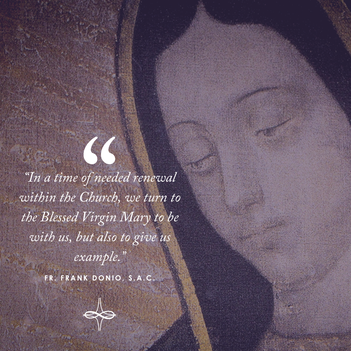
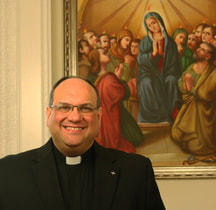
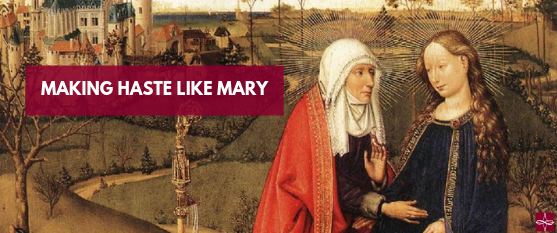

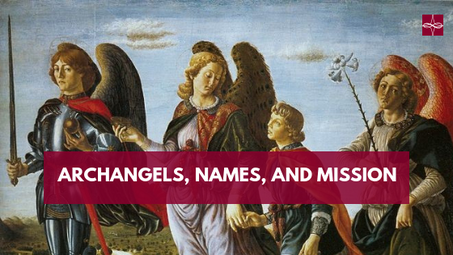

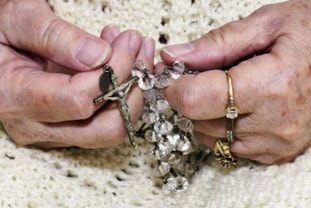
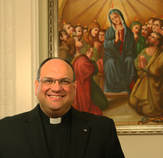
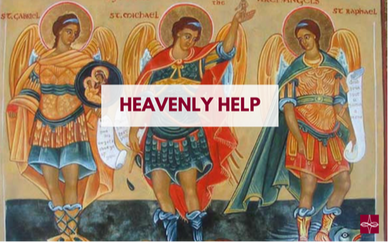

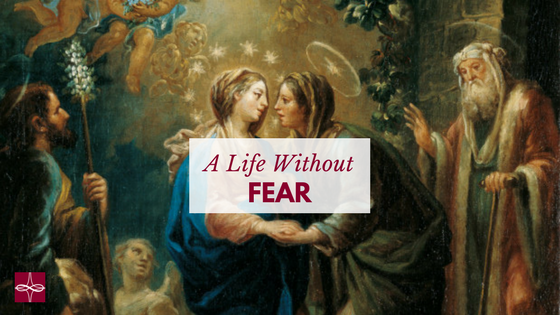

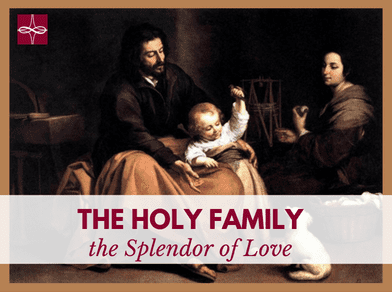
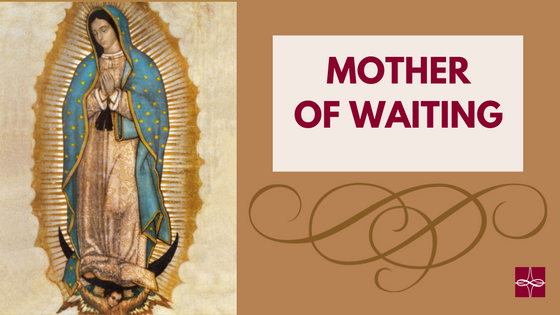

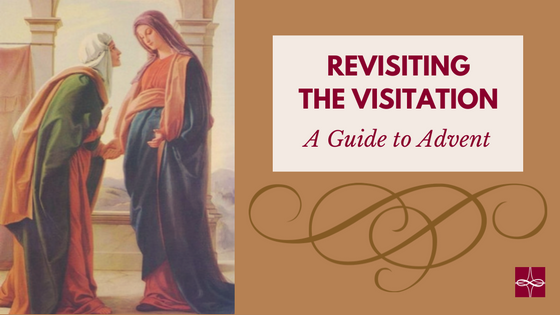

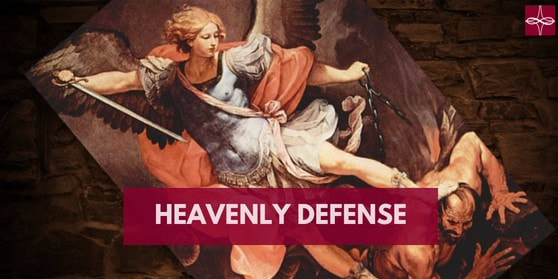

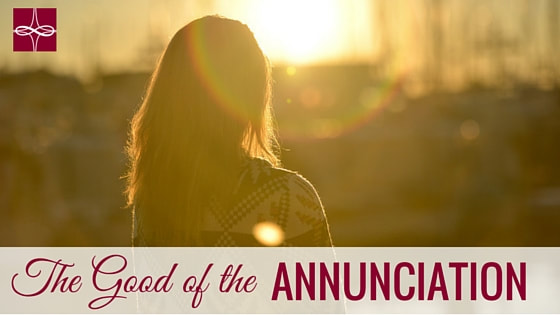

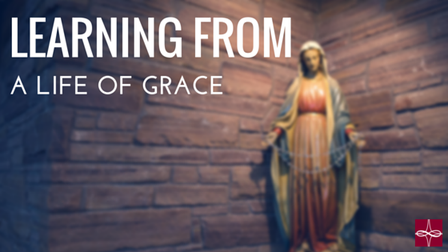

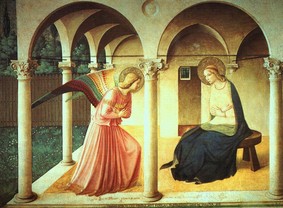
 RSS Feed
RSS Feed